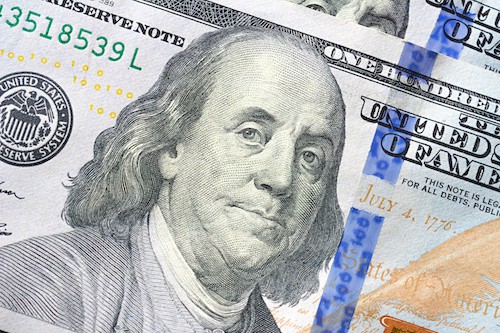702-660-7000
702-660-7000

In a participating whole life insurance policy, the “Face Value” of the policy is the dollar value of the benefit that will be paid should the insured die while the policy is still in force. Part of the face value consists of paid-up insurance, which is insurance that is actually owned by the policyholder. The other part of the face value consists of what is called “base coverage.”
The paid-up insurance portion of the face value can be leveraged for the purposes of taking a policy loan. In that case, the paid-up insurance becomes the collateral for the loan and continues earning dividends while the policy loan is outstanding. This is because the paid-up insurance hasn’t been forfeited but rather is only being held as collateral to secure the loan which the insurance company provided to the policy owner. If a policy loan is outstanding at the time the insured of the policy dies, the balance of the loan will be paid off (along with any outstanding interest) with money from the face value and the remaining balance will become the death benefit paid to the beneficiary(s). If no policy loan is outstanding at the time the insured passes, then the face value becomes the death benefit and is paid to the policy beneficiaries.
With universal life insurance policies (and this includes variable universal and indexed universal products with flexible and/or variable premiums and coverage) the face value is achieved by the purchase of term insurance. And so, there is NO equity (paid-up insurance) to leverage when taking a policy loan from a universal life insurance policy. Consequently, when a policy loan is taken from a universal life insurance policy the loan actually comes from the accumulated cash value of the policy. Of course, the accumulated cash value of a universal life insurance policy exists only because the payer of the policy has been paying higher premiums than what would be required to purchase the same amount of term insurance coverage without it being part of a universal life insurance product, plus any returns or losses the investment portion of the policy has managed to add to those higher premium payments over the period of time the policy has been in force.
Money borrowed from a universal life insurance policy, therefore is money that is removed from the accumulated cash values of the policy and placed into a loan account by the insurance company and from there is lent to the policy owner. The interest paid on this loan returns to the loan account, minus any fees charged by the insurance company to manage the loan process. When the insured of a universal life insurance policy dies, no loan has to be repaid even if there was an outstanding loan, because the money borrowed has already been taken out of the accumulated cash values when the loan was initiated.
Thus, the marketing ploy often emphasized in most universal life insurance sales, that “You get the death benefit PLUS your accumulated cash value back when you die” is really disingenuous. After all, you’ve paid more for the insurance coverage than was necessary in the first place, for the same amount of coverage. And secondly, if you die with an outstanding universal policy loan, you’ve already decreased your accumulated cash values (whatever part you borrowed) and only what is left will be added to the death benefit. There is no free or extra face value created here for the policyholder.
This is why a universal policy loan is nothing like the loan that can be taken against a participating whole life policy. In participating whole life insurance, the paid-up insurance owned by the policy holder continues to earn dividends which increases the face value of the policy regardless if you have a policy loan outstanding or not. Besides, the fact is that universal life insurance policies NEVER earn dividends, and that means the only thing gained by borrowing from a universal life insurance policy it the interest you pay yourself back for borrowing your own money from the policy, minus any fees or service charges the insurance company keeps for managing the loan for you.
That being said, it is important for you NOT to take people, including a friend or family member who is an insurance agent, at FACE VALUE. If you do, you risk having to find out some facts the hard way. Mark Twain apply stated, “Facts are stubborn things, but statistics are pliable.” This isn’t to say that all life insurance agents are flakes or fibbers but the fact is, “We know there are known knowns; and there are things that we know we know. We also know there are known unknowns; that is to say, we know there are things we don’t know. But we need to know that there are also unknown unknowns; things we don’t know but need to know.”[i] These are the things you need to know before you purchase a life insurance policy. And if you don’t know them you may end up wishing you had.
[i] Donald Rumsfeld